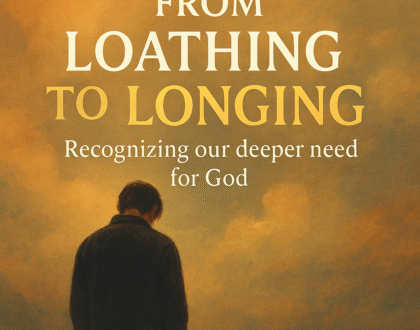God’s Heartbreak

From Sunday’s Sermon
The call to worship today reminds us that God, the Creator, continually speaks and summons us into relationship, from the rising of the sun to its setting. Yet, so often, we take for granted the very breath and life that God provides, wandering away like sheep, not realizing that everything we have is a gift from the One who made it all. The heart of wickedness, as revealed in Scripture, is not simply about breaking rules, but about breaking relationship—turning away from the God who loves us, provides for us, and longs for us to return. Jeremiah and Hosea both use the language of betrayal and rejection to describe how our actions wound God: like a spouse who is unfaithful or a child who turns away from a loving parent. These images cut to the core, showing that our wandering and hardened hearts are not just about disobedience, but about breaking God’s heart.
Jesus echoes this lament, longing to gather us as a mother hen gathers her chicks, but so often we are unwilling. He warns against hypocrisy—professing love for God while failing to love our neighbors, shutting the door of the kingdom in others’ faces, and majoring in the minors while neglecting justice, mercy, and faithfulness. These are not just failures of morality, but failures of relationship, ways we reject and betray the God who continually reaches out to us.
Yet, the good news is that God’s love song for us never ends. While we may turn away, God keeps turning toward us, longing for restoration rather than rejection. Like the persistent donkey in Shrek, God refuses to give up on us, always knocking, always ready to welcome us home. No matter how far we have wandered, no matter how deeply we have betrayed or rejected God, the invitation remains: come back to the fountain of living waters, to the arms of the loving Parent, to the Savior who longs to gather us in. Fear is not the motivation for following Christ; love is. The bread and the cup remind us that God’s love is always available, always sufficient, and always calling us to return, to be restored, and to share that love with others.
Key Scriptures
Hebrew 3:7-12
Jeremiah 2:13 & 3:20
Hosea 7:1 & 11:3-7
Matthew 23:37-38
Key Takeaways
- 1. Wickedness is Breaking Relationship, Not Just Rules – The root of wickedness is not merely disobedience or breaking God’s commands, but breaking God’s heart by turning away from relationship. When we wander, take God’s gifts for granted, or choose other “gods” like status or self-interest, we are not just violating rules—we are wounding the One who loves us most deeply. This reframes sin as a relational rupture, calling us to consider how our actions affect our connection with God. [36:19]
- 2. Betrayal and Rejection: The Deepest Wounds to God – Jeremiah and Hosea reveal that our spiritual unfaithfulness is like the pain of a spouse betrayed or a parent rejected by their child. These metaphors invite us to feel the depth of God’s ache when we turn away, reminding us that our choices have emotional and relational consequences for God. Recognizing this can move us from guilt to genuine repentance and a longing to return. [42:04]
- 3. Hypocrisy and Empty Religion Shut the Door to God’s Kingdom – Jesus warns that when we profess faith but fail to love our neighbors, or when we decide who is “in” or “out,” we are not just being inconsistent—we are shutting the door of the kingdom in others’ faces. True faith is not about outward appearances or religious gatekeeping, but about embodying God’s justice, mercy, and love in tangible ways. This challenges us to examine where we may be majoring in the minors and missing the heart of God’s law. [46:01]
- 4. God’s Love Song Never Ends, Even When Ours Does – While human love often falters or ends in rejection, God’s love is persistent and unending. Even when we walk away, build walls, or refuse God’s embrace, God continues to pursue us, longing for restoration rather than retribution. This relentless love is not based on our worthiness, but on God’s character, inviting us to return again and again, no matter how far we have strayed. [50:19]
- 5. Love, Not Fear, is the True Motivation for Following Christ – The bread and the cup are not reminders to fear hell, but invitations to receive and respond to God’s self-giving love. Fear may coerce outward compliance, but only love transforms the heart and sustains a lifelong relationship with God. We are called to practice this love daily, both in our devotion to God and in our generosity and service to others, knowing that God’s love is always sufficient to welcome us home. [64:54]
Questions for Reflection
When you think about the idea that sin is “breaking God’s heart,” not just breaking rules, does that make you see any of your actions differently? Is there a specific relationship or habit where you sense God inviting you to return?
The images of betrayal and rejection are very personal. Have you ever felt betrayed or rejected by someone close to you? How does it help you understand God’s ache when we turn away?
The sermon challenged us to examine where we might be hypocritical—professing love for God but failing to love our neighbor. Can you think of a recent situation where your actions didn’t match your words or beliefs? What could you do differently next time?
Pastor Jason said, “Fear is not the motivation to love or follow. I want to love you into heaven.” Have you ever been motivated by fear in your faith? What would it look like to let love, not fear, be your motivation for following Jesus?
God’s love is described as persistent and always welcoming us home. Is there someone in your life who needs to experience that kind of love from you? What is one practical way you can show them God’s love this week?
Recommended Posts

From Loathing to Longing
September 16, 2025

God Mourns the Wicked
September 8, 2025
Love: The Essence of Sacrifice
September 4, 2025
